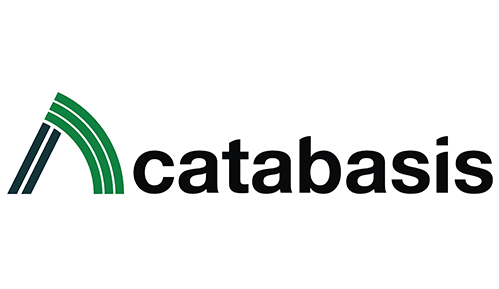
Catabasis Pharmaceuticals, Inc. shared additional clinical results from the MoveDMD trial of edasalonexent at the XVII International Conference on Duchenne and Becker Muscular Dystrophy in Rome, Italy this weekend. We are pleased to learn that in the Phase 2 MoveDMD trial and open-label extension, boys on edasalonexent appear to be growing like their unaffected peers while also demonstrating substantially slowed disease progression.
Catabasis has also shared the latest edition of their newsletter about the currently recruiting Phase 3 PolarisDMD trial for edasalonexent in Duchenne. We appreciate Catabasis continuing to update the community and look forward to learning more.
Read the release from Catabasis:
Catabasis Pharmaceuticals Presents Data Supporting Edasalonexent as a Potential Foundational Treatment for Duchenne Muscular Dystrophy
— Boys on Edasalonexent Grew More than Two Inches Taller per Year on Average —
CAMBRIDGE, Mass., February 19, 2019 – Catabasis Pharmaceuticals, Inc. (NASDAQ:CATB), a clinical-stage biopharmaceutical company, today shared additional clinical results from the MoveDMD trial of edasalonexent. In the Phase 2 MoveDMD trial and open-label extension, boys with Duchenne muscular dystrophy (DMD) treated with edasalonexent on average grew in line with the growth of unaffected boys in the same age range. These data were presented on Sunday, February 17, 2019, at the XVII International Conference on Duchenne and Becker Muscular Dystrophy in Rome, Italy.
“While the primary goal in treating boys with Duchenne is to slow the progression of the disease, we recognize the significant negative impact on boys’ quality of life when they do not grow and develop like their friends. We are pleased to see boys on edasalonexent growing like their unaffected peers while also demonstrating substantially slowed disease progression,” said Joanne Donovan, M.D., Ph.D., Chief Medical Officer of Catabasis. “These characteristics are what make edasalonexent a great potential foundational therapy for the treatment of Duchenne.”
In the MoveDMD trial, boys treated with edasalonexent grew an average of 2.1 inches taller per year and gained 2.9 pounds per year, and their overall body mass index decreased from 70th percentile of unaffected boys to the 55th percentile over 72 weeks of treatment, approaching the average body mass index for unaffected boys. Boys treated with corticosteroids, the standard of care in DMD, typically experience excess weight gain and curtailed growth.
“Using corticosteroids can be very beneficial to many patients with DMD. However, alternatives are desperately needed as steroids come with a long list of very unpleasant side effects, which includes stunted growth. This can affect self-esteem and confidence. We are very encouraged by this early data suggesting that boys on edasalonexent did not have their growth affected, and we look forward to seeing more results,” said Emily Crossley, co-founder and co-CEO, Duchenne UK.
Edasalonexent is being studied in the Phase 3 PolarisDMD trial, which is actively enrolling patients. The PolarisDMD trial is evaluating the efficacy and safety of edasalonexent in patients with DMD and is intended to support an application for commercial registration of edasalonexent. A total of 17 PolarisDMD clinical trial sites are now open for enrollment across the United States, Canada and Australia. Additional PolarisDMD clinical trial sites are expected to open in the United States, Canada, Europe, Australia and Israel in the next couple of months. In total, the PolarisDMD trial will include approximately 40 clinical trial sites globally with enrollment expected to be completed in 2019.
The global Phase 3 PolarisDMD trial is a one-year, randomized, double-blind, placebo-controlled trial. Catabasis plans to enroll approximately 125 patients ages 4 to 7 (up to 8th birthday) regardless of mutation type who have not been on steroids for at least 6 months. Boys on a stable dose of eteplirsen may be eligible to enroll. The primary efficacy endpoint is change in the North Star Ambulatory Assessment score after 12 months of treatment with edasalonexent compared to placebo. Key secondary endpoints include the age-appropriate timed function tests: time to stand, 4-stair climb and 10-meter walk/run. Assessments of growth, cardiac and bone health are also included as important potential areas of differentiation. Two boys will receive 100 mg/kg/day of edasalonexent for each boy that receives placebo, and, after 12 months, all boys are expected to receive edasalonexent in an open-label extension study. The PolarisDMD trial design was informed by discussions with regulators as well as input from treating physicians, patient organizations and families of boys affected by Duchenne.
The Phase 3 PolarisDMD trial is designed to further validate the positive efficacy seen in the MoveDMD Phase 2 trial and open-label extension evaluating edasalonexent. In the MoveDMD trial, we observed that edasalonexent preserved muscle function and substantially slowed DMD disease progression across all four assessments of muscle function (the North Star Ambulatory Assessment, time to stand, 4-stair climb and 10-meter walk/run) through 72 weeks of treatment compared to an off-treatment control period. Preclinical data and clinical biomarker data from the MoveDMD Phase 2 trial suggest that edasalonexent could have potential benefits in skeletal muscle, diaphragm and heart. Edasalonexent has been well tolerated through more than 55 patient-years of treatment with no safety signals observed.
More information about the Phase 3 PolarisDMD clinical trial is available on clinicaltrials.gov and in a recently recorded webinar with PPMD. Contact the Catabasis clinical team with any questions at DMDtrials@catabasis.com.



 by: Parent Project Muscular Dystrophy
by: Parent Project Muscular Dystrophy

